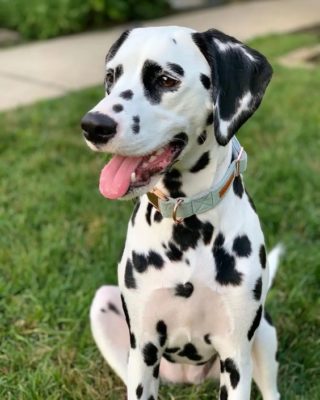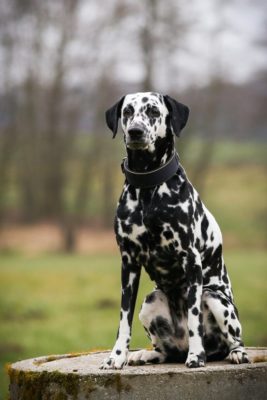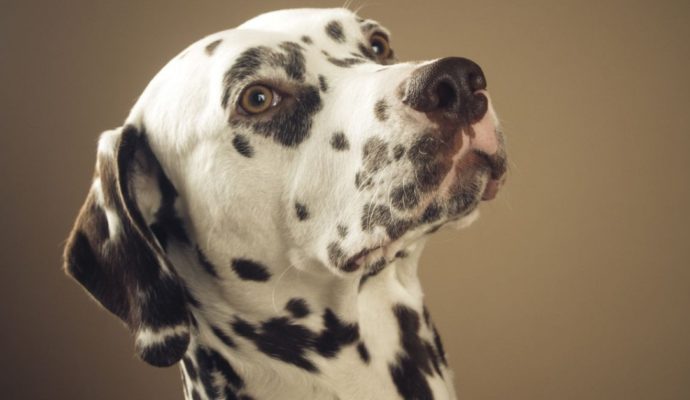Dalmatian
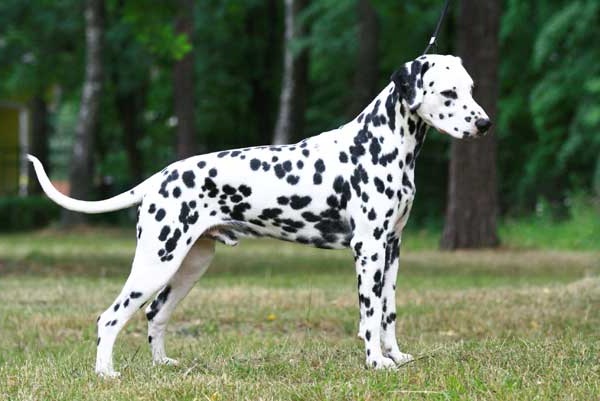
The Dalmatian is the soul of the company, irrepressible energy and comes from everywhere. These fidgety dogs only enjoy new adventures. They will gladly go with you to the edge of the world and will always be ahead of the whole planet. Active travel – it’s the best thing in their life. If you find it challenging to think about different activities or have no free time for walks, you should not get such a breed.
Table of Contents
Breed Information
| Another Name | Carriage Dog, Spotted Coach Dog, Leopard Carriage Dog, Firehouse Dog, Plum Pudding Dog |
| Origin | Croatia |
| Height | Males 56-61 cm Females 54-59 cm |
| Weight | 24-32 kg |
| Fur | Short |
| Color | Black and white, brown and white |
| Lifespan | 10-14 years |
| FCI Classification | Scent hounds and related breeds |
| Group | Dogs for kids, guard dogs, dogs for apartments |
| Price | From $200-800 |
Breed Photos
Origin History
Everyone knows them! The Dalmatian is an international dog breed. All countries in the world wanted to attribute their origins to these spotted beauties. Austria, Egypt, India, Greece, Italy, and England fought for the right to call themselves the ancestral country officially. This fierce struggle was won by Croatia, which has documented that it was on the Balkan Peninsula that the first breeding of spotted dogs began, crossing such breeds as the Istrian Pinter and the Great Dane. At the beginning of the XVII century, ancient Dalmatians even adorned Yugoslav princes’ coats of arms. Most often, they acted as rat-catchers and shepherds, sometimes moonlighting in the circus. The English also had a hand in this breed’s popularization; professional breeders helped to turn the dogs into a full-fledged breed. They first made headlines at dog shows in 1890.
Appearance
Their unusual appearance made Dalmatians popular in high society. In the 19th century, it was considered a good form among the nobility to carry puppies in their arms or a basket. The Dalmatian’s appearance is deemed original not only because of its black and white coat color. The aesthetic and proportional body of these strong and muscular animals fascinate absolutely everyone. Aristocratic elongated muzzle, taut belly, folded ears. Thanks to the long and slender limbs, they can develop a furious speed and easily cope with physical exertion, easily tolerate the heat. Dogs are considered large; their height at withers reaches 62 cm, weighing up to 32 kg. The short coat is always shiny, thick, and soft. The color is white with black or brown spots.
Character
The Dalmatian is the soul of the company, irrepressible energy and comes from everywhere. These fidgety dogs only enjoy new adventures. They will gladly go with you to the edge of the world and will always be ahead of the whole planet. Active travel – it’s the best thing in their life. If you find it challenging to think about different activities or have no free time for walks, you should not get such a breed. If the Dalmatian does not get his portion of clean air and does not reach a sufficient exercise level, wait for trouble. Apathy, constant sadness in the eyes, lack of appetite, and stripped furniture – these unpleasant surprises can wait for the owner. Intelligent, cunning, and stubborn, but always ready to please the owner. Around the family are affectionate, loyal, and friendly.
Care
The Dalmatian is a breed that likes to live indoors, is afraid of the cold, and prefers a warm climate. Very clean, will not get dirty, and roll in the dirt deliberately. Despite their short hair, they shed heavily and should be combed out once a week. Particular attention should be paid to the toilet Dalmatian; he has a unique urination system, there is a possibility of “not enough”, keep in mind.
Training
The Dalmatian is ready to learn; the process of training is perceived calmly and with interest. Everything depends on the animal’s right approach because with aggression and shouting, you are unlikely to achieve quick and necessary results. Activity and variety will help to harmonize and enjoy the training. And encouragement in the form of goodies, praise, and other tenderness will speed up the process to the sky!
Dalmatians require early socialization, acquaintance with children and other animals; they need to get into different situations, train, and form their character as flexible and open as possible. Then you can be sure that the dog will behave perfectly with a child, though they are naturally endowed with a very kind character and love children. Unfamiliar people are perceived without aggression, either neutrally or positively.
Common Diseases
Dalmatians are prone to genetic diseases such as hereditary deafness, urolithiasis, skin allergies, elbow dysplasia. With proper care, one can live a happy thirteen-year life. Visits to the veterinarian and vaccinations should not be neglected. All pets are susceptible to infectious diseases, regardless of breed or age. Walks, proper feeding, and temperature control are essential for the dog.
Nutrition
Dalmatians are allergic, and it is important to choose a diet that will not affect their health. It is obligatory to monitor the pet’s reaction to each product so that it can be excluded from regular consumption in case of problems. For these dogs, you can choose both natural food and dry food. Dry food is easy to use, includes all the minerals and vitamins. Special age-appropriate and hypoallergenic foods have been developed.
Natural food is a familiar food for all animals, but it is challenging to develop a regular menu. Also, quality products are not cheap. For a Dalmatian, half of the diet should be lean meat: lamb, beef, chicken, rabbit.
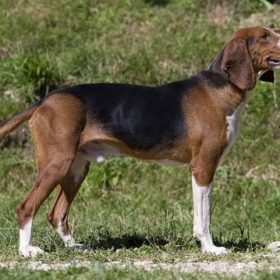 Serbian Tricolour Hound
Serbian Tricolour Hound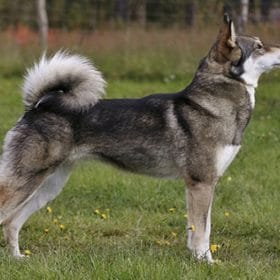 East Siberian Laika
East Siberian Laika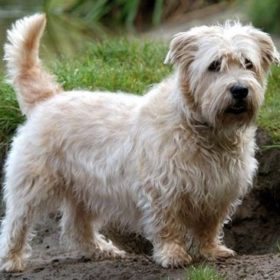 Glen of Imaal Terrier
Glen of Imaal Terrier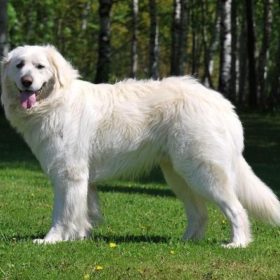 Slovak Cuvac
Slovak Cuvac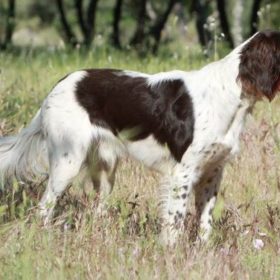 French Spaniel
French Spaniel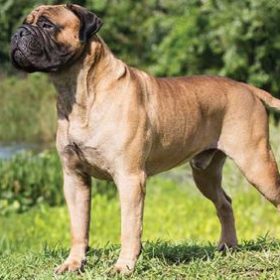 Bullmastiff
Bullmastiff